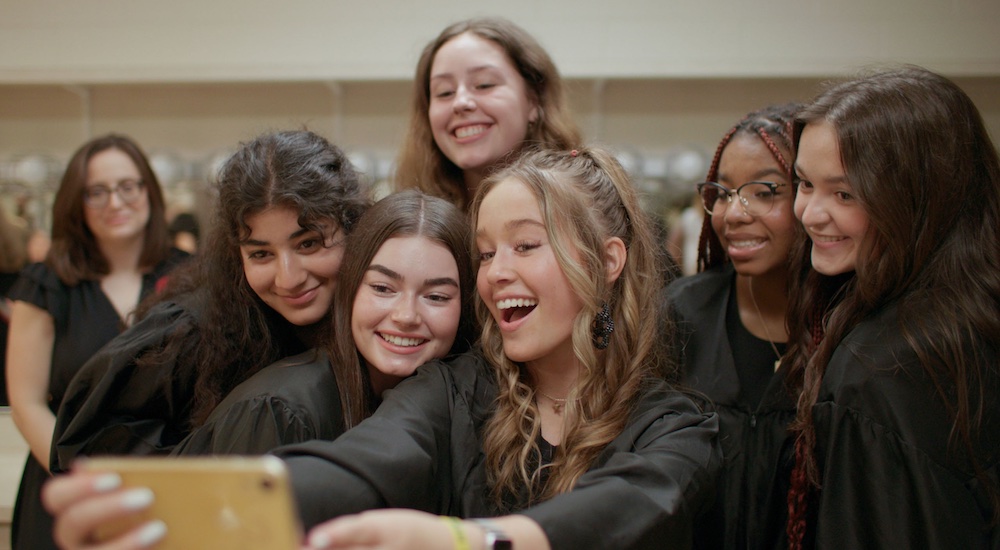As Barbie illustrated this past summer, an all-female government is an intriguing idea. How would it differ from our current male-dominated one? Would it be more conciliatory or would it be even more polarized? In Girls State, filmmakers follow a group of teenage girls in Missouri through a week-long immersive camp where girls are tasked with building a government from scratch. Much like its counterpart documentary Boys State, Girls State is a well-done film that leaves viewers hopeful and cynical, often in equal measure.
The documentary follows a handful of girls, including Emily, the conservative channeling Reese Witherspoon in Election, Nisha, the socially awkward policy wonk, Tochi, the attorney general candidate facing micro-aggressions as one of the few black girls, and Brooke, the small-town liberal hoping to earn a place on the program’s Supreme Court. Though they all come from different places, they are excited to be there, to have policy debates, and to connect with girls just like them.
As we watch these teens begin their journey, both the girls and the audience begin to notice differences between the two programs, especially with Boys State being held at the same time on the same college campus. Girls are told they aren’t allowed to go anywhere alone and there’s an enforced dress code. Sure, there are friendship bracelet-making parties and spontaneous sing-alongs to pop hits, but the girls sense that their schedules are much less rigorous than the boys’.
The other reality check is with politics itself. So much of the program revolves around campaigning, particularly for the program’s highest position — governor. Emily runs a grassroots campaign, having difficult conversations with the majority-left-leaning Girls State population. Another girl, Faith, believes she can win on her honesty and policy work. While another candidate, Cecilia, leads with her gregarious personality and impassioned speeches. Nisha, the shy girl, finds herself running for Supreme Court against her friend Brooke, an outgoing camper who has no problem approaching strangers. As votes are tallied, it’s clear that campaigns aren’t necessarily won on sheer merit but on multiple factors.
Just like they did with Boys State, filmmakers Amanda McBaine and Jesse Moss present these girls and their conversations with no bias or judgment. They are impartial observers that allow their audience to form their own conclusions. However, the program was filmed in 2022 when Roe v. Wade was heavily rumored to soon be struck down by the Supreme Court. In a setting full of girls, that decision and its consequences soak through almost every conversation.
It’s encouraging to see these girls engage with modern issues and they certainly suffer no fools. Per usual, these teens are great at cutting through adult lies. They push back on the dress code and ask why the boys’ governor gets sworn in by the actual Missouri governor while the girls’ does not. They point out how ridiculous it is that a court of mostly men is making decisions on their bodies. They’re quick to highlight that all these messages of “female empowerment” from their counselors mean nothing when their program receives less than half of the funding of their male counterparts.
Girls State is incredibly well done and the filmmakers capture teenage girls in their natural environment, talking policy while braiding each other’s hair and hyping each other up before going on stage to talk in front of a crowd. It’s incredibly heartwarming to watch. At the same time, the documentary, like its subjects, reveals the inequities between the programs and how far there is to go to see the gender distribution among politicians even out. It’s equal parts hope and cynicism, with just enough positive to outweigh the negative.

